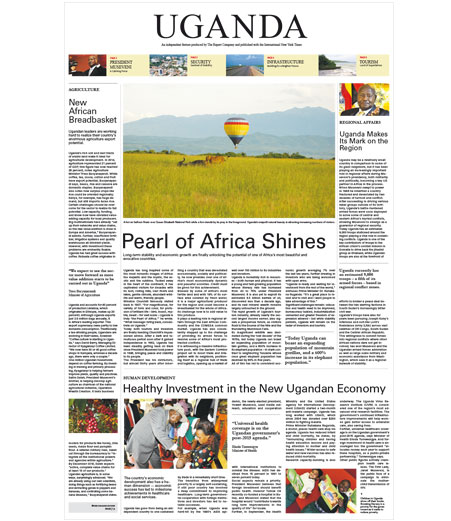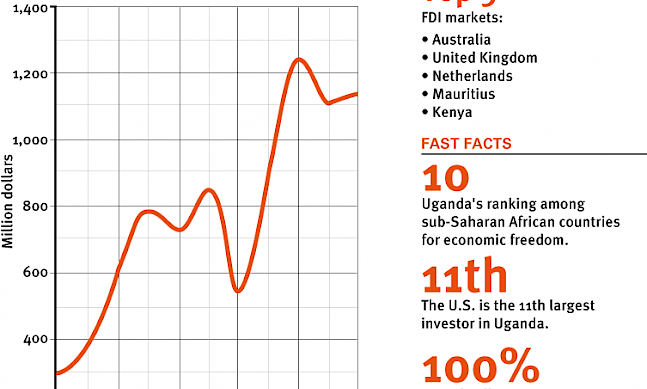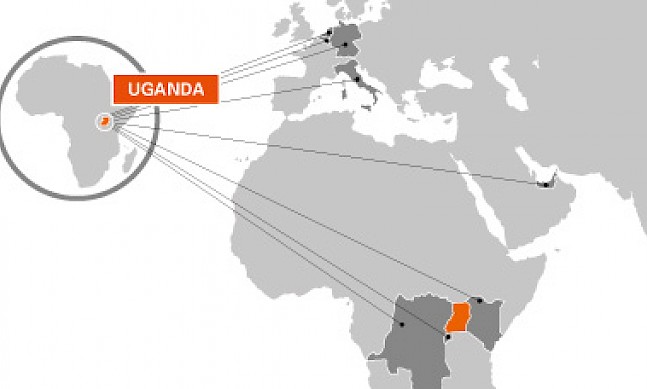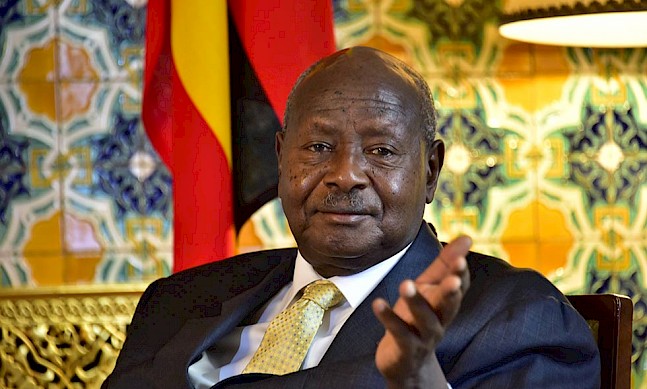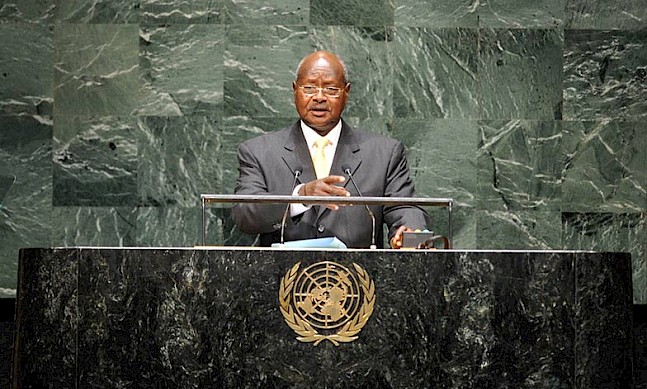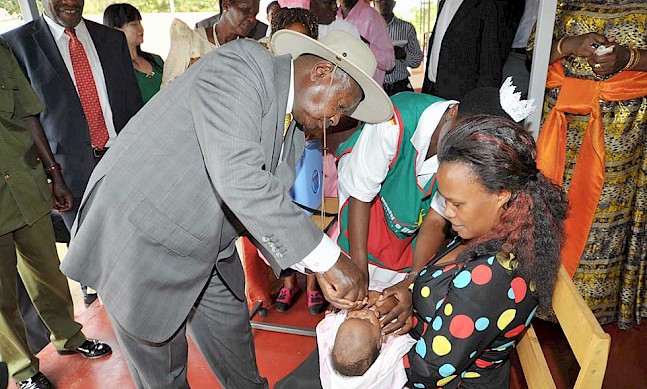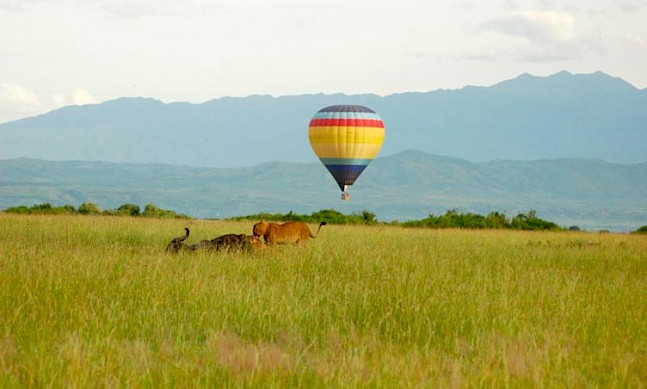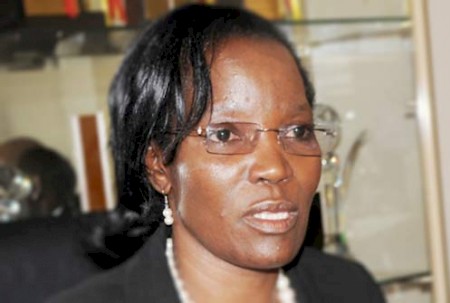
A lawyer by profession, Jennifer Musisi took over at the helm of Kampala Capital City Authority in 2011, and since then has dedicated herself to transforming Kampala into a vibrant, attractive and sustainable metropolis. She talked to The Report Company about her strategy to overcome challenges ranging from rural-urban migration to road safety.
The Report Company: What did you set out to achieve when you took on this role?
Jennifer Musisi: Our mandate was to transform the city and resuscitate it. For the last so many decades, the city had degenerated in service delivery, in infrastructure, in basically every area because of poor administration. When the law was changed and the KCCA was created, it was done with the intention of addressing the challenges the city was facing. We came in to put Kampala back on its feet.
We began by restructuring the institution. We rebranded, we changed the entire staffing structure, and we terminated over 1,500 of the staff that we found working here. I went through the process of recruiting new, highly competent staff. We looked everywhere. We looked outside Uganda, we looked at the diaspora, we looked at other corporate organizations, because we were looking for a certain culture and a certain passion.
Once that was in place, we were able to draw up a strategic plan and then set out our priorities for the period, starting with the most urgent. The most urgent included doing the basic things in the city: service delivery, cleaning, reducing garbage and solid waste, clearing drains, fixing roads and easing traffic flow.
We are also working on social issues, such as the welfare of the people in the city. We are looking at creating jobs for low-income families and we are looking at improving household nutrition through agriculture programs. Then we have been creating workspaces, building markets and creating jobs. We’ve set up an employment services bureau for the youth.
Another aspect is in greening the city. Our target is to plant a million trees within the next five years. The idea is to make Kampala attractive, which it wasn’t before. It was more like a transit point for other parks of Uganda. Today, we are working on making Kampala an attractive destination in and of itself for business, for tourists, and for people living and working in the city.
There is no public transport system, so we are working putting in buses and resuscitating the train services. We’ve started a feasibility study for cable cars for urban transportation and also a bus rapid transit system. We’re now looking for funding to implement that, as well as a light rail.
There are many things that we want to do going forward but really we need to do the basics, the things that people from other jurisdictions take for granted. We have made a lot of progress and now we’re looking at going beyond that to other priorities such as urban planning. We are developing detailed neighborhood plans so that we can have satellite towns to decongest the city. We’ve also been working with the private sector to build off-street parking facilities so that we can remove parking as much as possible from the streets and create more mobility. We have plans to build flyovers at certain junctions and in the next few months we are starting on widening junctions.
“We are already a role model. We have received a lot of interest from other municipalities in Uganda.”Post This
TRC: How much of a challenge does Kampala’s explosion population growth present to your plans?
JM: Rural-urban migration is going to continue to be a challenge, as long as the other urban centers in the country are not providing similar opportunities. We hope that by government working with other agencies will be able to address this. The government is already looking at placing industries outside Kampala, so that the working population is attracted to these alternatives.
TRC: To what extent is Kampala a template for other Ugandan cities to follow?
JM: We are already a role model. We have received a lot of interest from other municipalities in Uganda. We have started a capacity-building program where the political and technical leadership of different municipalities comes to Kampala for three or four days and we take them through a transformation journey. We share the initiatives that we’ve put in place, we share our experiences and we share our technical knowledge.
As an example, we have ten health centers in the city, and instead of just having to cater to the residents of Kampala, people are coming from all over Uganda. This is overwhelming us, but it just shows that people have confidence in what we are doing and that our health service delivery is much better than elsewhere. We are teaching the other urban authorities what we have done in these different areas and we are exporting that expertise.
We are also getting interest from the rest of Africa. We have had benchmarking visits from Tanzania, Burundi, Kenya and Malawi. In many cases, I think there has been some frustration in trying to address challenges in cities. Some of this is down to political factors, some is social, so the fact that we are making progress is encouraging to other urban authorities.
“A lot of countries and organizations are interested in what we’re doing. We have had the opportunity to address Kampala’s issues and highlight Kampala’s progress all over the world.”Post This
TRC: You recently made a presentation at the UN in New York, entitled "Post 2015 UN Development Agenda Kampala Experience". What does this international exposure bring to KCCA’s work?
JM: When I went to the UN I was invited to speak about our climate change initiatives as well as the transformation that we have been able to put in place in the last four years.
We have got a lot of international engagement. A lot of countries and organizations are interested in what we’re doing. We have had the opportunity to address Kampala’s issues and highlight Kampala’s progress all over the world, the result of which is we’ve received a lot of international accreditation and appreciation.
Last year, we got four international awards for our performance and this year we have already got one from Geneva and I understand we will be getting one from South Africa. It’s very encouraging. People want to know about our climate change initiative and our anti-corruption strategy. They also look at the time it has taken us to do what we have done and I think that by any standards it’s actually very impressive.
TRC: How does the climate change initiative work?
JM: It is really addressing basic things like the protection of the environment in terms of solid waste management, the making of biogas from our landfill which we’ve already established as viable, and the greening of the city. We are also implementing agricultural programs, kitchen gardens and improving income and nutrition in schools using the mini-garden model.
We have women cooking in one of our markets using firewood and charcoal, which is terrible for the environment and their health. Now, we have an initiative where they use volcanic rocks to cook. They burn like gas but at the fraction of the cost and they last for years because they don’t disintegrate. That is something we are looking at expanding from the market women to households. If we could replicate that, it would have a huge impact on our forests in terms of degradation.
We’re also recycling, and now we are finding several groups that are making charcoal briquettes out of garbage for cooking. That replaces the wood fuel that has been used by so many communities.
Then there is flood control. We are working to clean our water, collect our surface runoff during the rain and using it to water the city in the dry season. There is a big effort to get us some funding to support some of these programs with the UN.
TRC: Have you stepped on many toes with all of these sweeping changes?
JM: A huge number. Toes, heads, egos, political sentiments, everything.
TRC: What has given you the courage to transform an entire city?
JM: We’ve got very strong support from government, led by the president. Everybody was fed up of the state the city was in, but the compliance levels were terrible because everybody did what they wanted, where they wanted and when they wanted. When we came in with our mandate, this is one of the things we addressed, and our strategy is that everybody toes the same line. It doesn’t matter who you are, how rich you are or where you come from; everybody must comply. That came as a shock to some people, especially because we demolished a few very significant structures belonging to very well-connected people and took others to court. But the result of this way that people realized that it’s not a personal thing, it’s not a political thing, it’s the law.
I want to make a contribution to making our city better and our country better. I was tired of making apologies for the country and making apologies to visitors about the state our city was in, and having our children wishing they lived somewhere else because of the chaos. There’s no point in complaining if you’re not ready to be part of the improvement. Someone has to start, and I think all of us are glad that we did.
TRC: What would you like potential investors to know about Kampala and about Uganda as a whole?
JM: The message that I’ve been giving investors everywhere is that I think the best decision in their lives in terms of investment or holiday destination would be Uganda. Kampala has been ranked as one of the ten safest cities in Africa. I don’t think there is a parallel country in terms of the natural variety, in terms of the lakes, the mountains, the rivers, and the wildlife. You can comfortably stay in Uganda because the weather is excellent, it doesn’t get too extreme, the people are very friendly and the culture is very receptive.
There is a lot of potential for investment. Our government is giving investors all sorts of incentives to encourage them to come to Uganda and they are very supportive of them. The oil industry is going to be a big booster. We are also completing the laying of a fiber optic cable that will ease communication in a big way countrywide. We have a very young, very well-educated workforce that is very pliable in terms of training and very motivated once they are given a task. We are making Uganda better and they need to be here and be part of the story.


